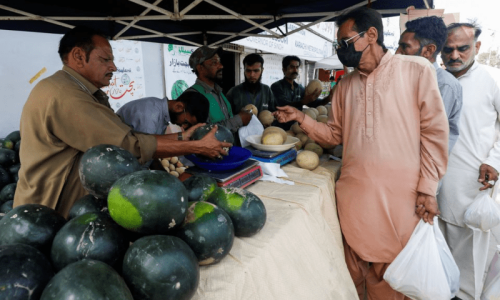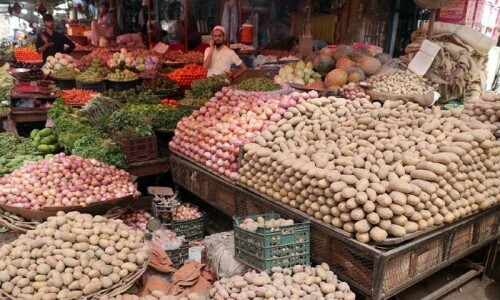
The latest report, Survival of the Richest by Oxfam (a British-founded confederation of 21 independent charitable organisations), highlights the perilous issue of the explosion of inequality around the world.
The world has been divided into two segments, haves and have-nots. The prevailing tax structure and neoliberal economic policies are just in favour of the tiny elite and cause a polycrisis of hunger, inflation, poverty, inequality, etc for the majority. This results in the elite capture of the political economy, hindering the majority’s social mobility.
As the majority is fronting multiple crises, the winners are the tiny elite class in all countries. The impact of Covid-19 is also protuberant after 2020 when the richest one per cent captured almost two-thirds of all new wealth. The billionaires generated $2.7 billion a day, whereas the majority suffered due to increased inflation, poverty, and joblessness during the period.
This is an age of crisis for the majority, which shows that global progress in reducing extreme poverty has come to a cessation. The International Monetary Fund forecasts that a third of the global economy will be in recession in 2023, whereas UNDP finds that human development has gone down in nine out of 10 countries.
While the majority is facing the global polycrisis, huge fortunes have been amassed by a tiny elite, thanks to the global economic model that only works for the proverbial 1pc
Oxfam also finds that real wages have gone down for almost 1.7bn workers worldwide due to inflation. Developing countries are facing bankruptcy due to ballooning debt payments, where the poorest countries are spending more on debt repayments than on basic services, like healthcare and education. Brutal spending cuts in these countries are distressing the lives of the poor, thus the bulging gap between rich and poor.
When the majority population was facing the global polycrisis, particularly after the pandemic, huge fortunes had been amassed by a tiny elite on the woes of the majority, thanks to the global economic model, which only works for the proverbial 1pc. The tiny elite is creating huge gains out of the current cost-of-living crisis by exploiting the majority. Thus the current crisis can reasonably be called a cost-of-profit crisis instead of a cost-of-living crisis.
The report sturdily argues that every billionaire is a policy failure. The extreme concentration of wealth not only results in political polarisation but is also harmful to economic growth. The trickle-down mantra is not working and is a fictional truth. The system is rigged in favour of the rich class, who are getting the benefits of decades of tax cuts and a regressive taxation system.
There is no wealth and inheritance tax in most countries, particularly in low and middle-income countries, where inequality is highest. The report concludes that taxing the rich and revisiting the economic policies adopted during the last four decades can result in a more equal, sustainable world free from poverty, hunger, and other crises.
Greater taxation can provide governments with enough revenues for social spending to create more equal societies with fewer economic, political, and social inequalities. Pakistan is facing the same polycrisis as highlighted in the report.
The UNDP report in 2021 also highlighted the flawed policy of economic privileges given to the tiny elite, where yearly subsidies amounting to $17.4bn were given to them. Instead of taxing the rich and investing funds for the benefit of the majority, the situation is the other way around, where the poor are taxed heavily, and the rich are subsidised using that money.
Pakistan also has a regressive taxation system that only favours the rich class. The elite capture is prevalent in society as highlighted in the book “Big Capital in an Unequal World: The Micropolitics of Wealth in Pakistan” by Rosita Armytage. The socio-political-economic structure is highly concentrated in a tiny elite, where mobility for the majority is nearly impossible.
Pakistan got independence in the name of Islam and Muslim intelligentsia believes that Islam is highly progressive and a panacea for all the ills faced by humanity. They also claim the validity of Islamic teachings till the Day of Judgment.
Then a big responsibility is on the shoulders of the religious intelligentsia to guide how Islamic teachings can be implemented in modern times for the benefit of humanity at large.
Now the big question is how Islamic principles of equality (socio-political-economic), egalitarianism, generosity, justice, compassion, liberty, fraternity, and brotherhood are relevant in modern times.
Teachings of Islam do not need revision, but re-interpretation and implementation of Islamic thoughts in current circumstances are required. Just preaching these values will not serve the purpose unless these principles are institutionalised.
For that, a political economy and a legal framework based on these principles should be developed. Before this, a few questions should be answered to model a structure based on the above principles.
Does Islam tolerate a society that is divided into two segments (haves and have-nots), or does it endorse a classless society? Whether Islam permits the concentration of wealth and income or encourages judicious distribution? Whether Islam promotes a collective society or encourages an individualistic society? Whether Islam encourages taking money from the poor and giving to the rich or are the teachings other way around?
After looking at the Islamic principles and answering these questions, we can conclude that the existing socio-political-economic structure, which only serves a tiny elite is against the Islamic teachings, thus, should be changed for the greater good.
The writer is a post-doctoral fellow at the University of Alberta and Associate Professor at COMSATS University Islamabad
Published in Dawn, The Business and Finance Weekly, April 17th, 2023















































Dear visitor, the comments section is undergoing an overhaul and will return soon.